Related Research Articles

The Abbey Theatre, also known as the National Theatre of Ireland, in Dublin, Ireland, is one of the country's leading cultural institutions. First opening to the public on 27 December 1904, and moved from its original building after a fire in 1951, it has remained active to the present day. The Abbey was the first state-subsidized theatre in the English-speaking world; from 1925 onwards it received an annual subsidy from the Irish Free State. Since July 1966, the Abbey has been located at 26 Lower Abbey Street, Dublin 1.
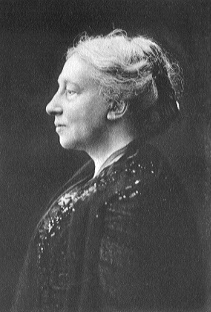
Isabella Augusta, Lady Gregory was an Anglo-Irish dramatist, folklorist and theatre manager. With William Butler Yeats and Edward Martyn, she co-founded the Irish Literary Theatre and the Abbey Theatre, and wrote numerous short works for both companies. Lady Gregory produced a number of books of retellings of stories taken from Irish mythology. Born into a class that identified closely with British rule, she turned against it. Her conversion to cultural nationalism, as evidenced by her writings, was emblematic of many of the political struggles that occurred in Ireland during her lifetime.
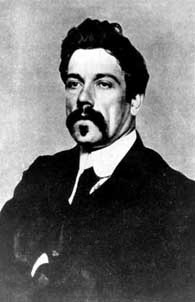
Edmund John Millington Synge was an Irish playwright, poet, writer, collector of folklore, and a key figure in the Irish Literary Revival. His best-known play The Playboy of the Western World was poorly received, due to its bleak ending, depiction of Irish peasants, and idealisation of patricide, leading to hostile audience reactions and riots in Dublin during its opening run at the Abbey Theatre, which he had co-founded with W. B. Yeats and Lady Gregory. His other major works include In the Shadow of the Glen (1903), Riders to the Sea (1904), The Well of the Saints (1905), and The Tinker's Wedding (1909).
The Irish Literary Revival was a flowering of Irish literary talent in the late 19th and early 20th century. It includes works of poetry, music, art, and literature.
The Irish Literary Theatre was founded by W.B. Yeats, Lady Gregory, George Moore and Edward Martyn in Dublin, Ireland, in 1899. It proposed to give performances in Dublin of Irish plays by Irish authors.

(William) Denis Johnston was an Irish writer. Born in Dublin, he wrote mostly plays, but also works of literary criticism, a book-length biographical essay of Jonathan Swift, a memoir and an eccentric work on cosmology and philosophy. He also worked as a war correspondent, and as both a radio and television producer for the BBC. His first play, The Old Lady Says "No!", helped establish the worldwide reputation of the Dublin Gate Theatre; his second, The Moon in the Yellow River, has been performed around the globe in numerous productions featuring such storied names as James Mason, Jack Hawkins, Claude Rains, Barry Fitzgerald, James Coco and Errol Flynn. Later plays dealt with the life of Swift, the 1916 Rebellion, the pursuit of justice, and the fear of death. He wrote two opera libretti and a pageant.

The Cuala Press was an Irish private press set up in 1908 by Elizabeth Yeats with support from her brother William Butler Yeats that played an important role in the Celtic Revival of the early 20th century. Originally Dun Emer Press, from 1908 until the late 1940s it functioned as Cuala Press, publicising the works of such writers as Yeats, Lady Gregory, Colum, Synge, and Gogarty.
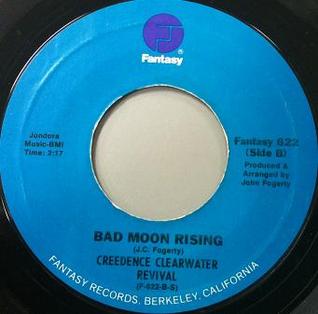
"Bad Moon Rising" is a song written by John Fogerty and performed by Creedence Clearwater Revival. It was the lead single from their album Green River and was released on April 16, 1969 four months before the album. The song peaked at No. 2 on the Billboard Hot 100 chart on 28 June 1969 and reached No. 1 on the UK Singles Chart for three weeks in September of that year. It was CCR's second gold single.
Thomas Rice Henn, known professionally as T. R. Henn, was an Irish literary critic.
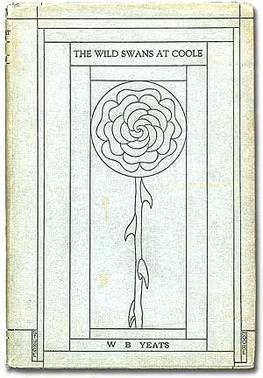
The Wild Swans at Coole is the name of two collections of poetry by W. B. Yeats, published in 1917 and 1919.
The Plough and the Stars is a four-act play by the Irish writer Seán O'Casey that was first performed on 8 February 1926 at the Abbey Theatre. It is set in Dublin and addresses the 1916 Easter Rising. The play's title references the Starry Plough flag which was used by the Irish Citizen Army.

"The Rising of the Moon" is an Irish ballad recounting a battle between the United Irishmen, led by Wolfe Tone, against British forces during the Irish Rebellion of 1798.
"The Sean-Bhean bhocht", often spelled phonetically as "Shan Van Vocht", is a traditional Irish song from the period of the Irish Rebellion of 1798, and dating in particular to the lead up to a French expedition to Bantry Bay, that ultimately failed to get ashore in 1796.

Cathleen ni Houlihan is a one-act play written by William Butler Yeats and Lady Gregory in 1902. It was first performed on 2 April of that year and first published in the October number of Samhain. Lady Gregory wrote the naturalistic peasant dialogue of the Gillane family, while Yeats wrote Cathleen Ni Houlihan's dialogue.
This is a list of all works by Irish poet and dramatist W. B. Yeats (1865–1939), winner of the 1923 Nobel Prize in Literature and a major figure in 20th-century literature. Works sometimes appear twice if parts of new editions or significantly revised. Posthumous editions are also included if they are the first publication of a new or significantly revised work. Years are linked to corresponding "year in poetry" articles for works of poetry, and "year in literature" articles for other works.

Sir William Henry Gregory PC (Ire) KCMG was an Anglo-Irish writer and politician, who is now less remembered than his wife Augusta, Lady Gregory, the playwright, co-founder and Director of Dublin's Abbey Theatre, literary hostess and folklorist.
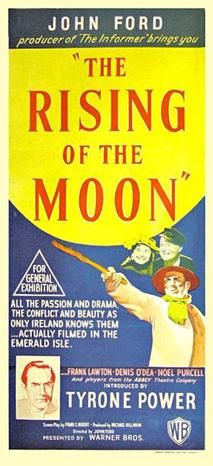
The Rising of the Moon is a 1957 Irish anthology film directed by John Ford. It consists of three episodes all set in Ireland:
The Rising of the Moon is an Irish ballad. The title may also refer to:
Amergin Glúingel or Glúnmar is a bard and judge for the Milesians in the Irish Mythological Cycle. He was appointed Chief Ollam of Ireland by his two brothers, the kings of Ireland. A number of poems attributed to Amergin are part of the Milesian mythology.
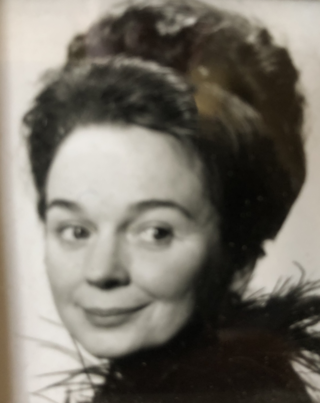
Maureen Cusack was an Irish actress. She was born in 1920 in Glenties, County Donegal, Ireland as Mary Margaret Kiely. She was married to Irish actor Cyril Cusack and they had five children Sinéad, Sorcha, Niamh, Paul and Pádraig. Sinéad, Sorcha and Niamh are all actresses and Pádraig is a theatre producer. Her grandsons are actors Max Irons and Calam Lynch, and the politician Richard Boyd Barrett. Her granddaughters are actresses Beth Cooke and Megan Cusack.